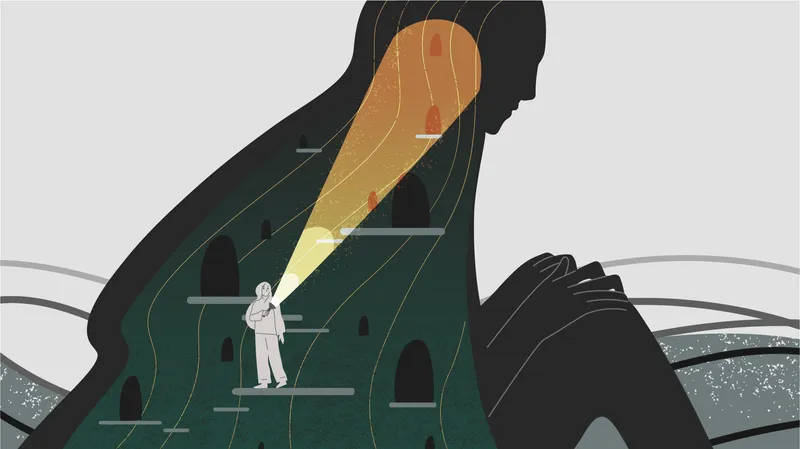The subconscious mind and its impact on our conscious decisions
The subconscious mind affects our conscious actions and decision-making. We can condition our subconscious mind with the practice of gratitude and compassion.
There are enough and more books that speak about the power of the unconscious and subconscious mind, and they are definitely on to something.
It is a well accepted fact that we are what we think. Sentient beings are somehow able to create their reality with the help of their subconscious thoughts. While the word ‘reality’ may be subjective to a lot of readers, the core statement in itself, in my opinion, is true. And, of course, we can divide ourselves into practical and non-practical thinkers, right-brain and left-brain thinkers, or empaths and non-empaths, but, at that the base of all exclusion and partitioning, there is one integrated biology we all belong to–the human race.
Dare I say that human beings are the smartest species on this planet? For the sake of this article, let’s agree to agree with this. Let’s also assume that humans are the only sentient beings on the planet. These might seem like an awful lot of assumptions, but we’ll get to the crux, I promise. Otherwise, we’ll be here till dawn debating sentience.

Image source: Shutterstock
So, humans and other ‘sentient’ beings on this planet have the ability to feel emotion. We feel good, bad, great, terrible and many other emotions in two ways–an external or an internal stimulus.
Someone said, “God, you look terrible today, you really need to work on your wardrobe!” and it sparked a feeling of anger, embarrassment, shame or guilt. So now you are grumpy all day.
Someone said, “Hey there, good morning! I am getting a cup of coffee, do you need one?” and it sparked a feeling of happiness, gratitude, friendship or love. And now you are happy all day.
So, you reacted to an external stimulus.
When you close your eyes to meditate, you let an internal stimulus take over your mind. You choose to do a guided meditation, or even a non-guided gratitude meditation, by simply thinking about the best thing that happened to you during the day. For instance, let’s say the coffee you got in the morning was delicious. And you say thanks to the person who made it, the person who invited you to drink it, and so on. This literally lights up your brain … I know what you’re thinking … but this is NOT an assumption.

Image source: Shutterstock
There’s research to prove this. According to UCLA’s Mindfulness Awareness Research Center, a regular practice of expressing gratitude causes neuroplasticity, changing the molecular structure of the brain in ways that make us both healthier and happier. Neuroplasticity is, in simpler terms, the ability of the brain to grow from infancy to adulthood in size, structure, etc. It also defines how your brain heals from injury. So, we’ve successfully established the fact that gratitude directly impacts the physical growth of the brain.
But we are still in the conscious phase of the brain. We still choose to be grateful by sentience. Let’s dive slightly deeper.
Have you ever stood on a really high cliff and felt, “Whoa, this is really high!”? That’s your conscious mind. And that thought, “I am definitely going to fall from here”, is your subconscious mind. There’s nothing wrong with that, but the possible realisation of your own mortality can be a bit of a wet blanket, especially when you’ve trekked all the way up there to experience the thrill of it. These are intrusive thoughts that generate somewhere between the subconscious mind and the conscious mind. And you automatically take one step back. Better safe than sorry. You don’t even realise that you stepped back. THAT is your subconscious mind at work. It is wired to keep you safe in conjunction with the conscious mind.
There isn’t a sign board (although I wish there were) that says, “Conscious mind territory ends here.” So, it’s difficult to pinpoint what thought comes from where. Butterflies in the stomach before a presentation or a date is an example of how the subconscious mind takes over a physical manifestation. One can argue these are just neurotransmitters, but they were triggered by emotions from the subconscious mind.

If a microsecond of stress can cause a thudding in the heart, imagine what five minutes of gratitude can do. If you are grateful, you make better decisions, you take better care of your loved ones, they feel happy, and so on. You are in a good ‘mood’, you feel happy, you think better, you have fewer arguments, and you are in a great place in life, regardless of the literal place you are in. And eventually, you feel a certain mental strength you’ve never felt before. That is your entire physical and mental self feeling content and powering you to have a happier, healthier life.
We often think that the subconscious mind is capable of huge things that happen overnight, and it is. But it takes years of conditioning to get there. It’s like that adage, “It took 20 years for me to become an overnight success.” The more grateful you are, the higher is the physical neuroplasticity of the brain; the better the neuroplasticity gets, the better is the functioning of the amygdala and the frontal cortex, which eventually gets you to behave from a space of empathy and you change the way the world looks at you. Hence, the subconscious mind directly impacts our conscious actions. Of course, the intricacies and the niceties of decision-making are too complex to understand and they depend on various factors in an individual's life. But from what I have learned in two decades of my Yoga practice is that the practice of gratitude and compassion can truly change lives.
Edited by Swetha Kannan







